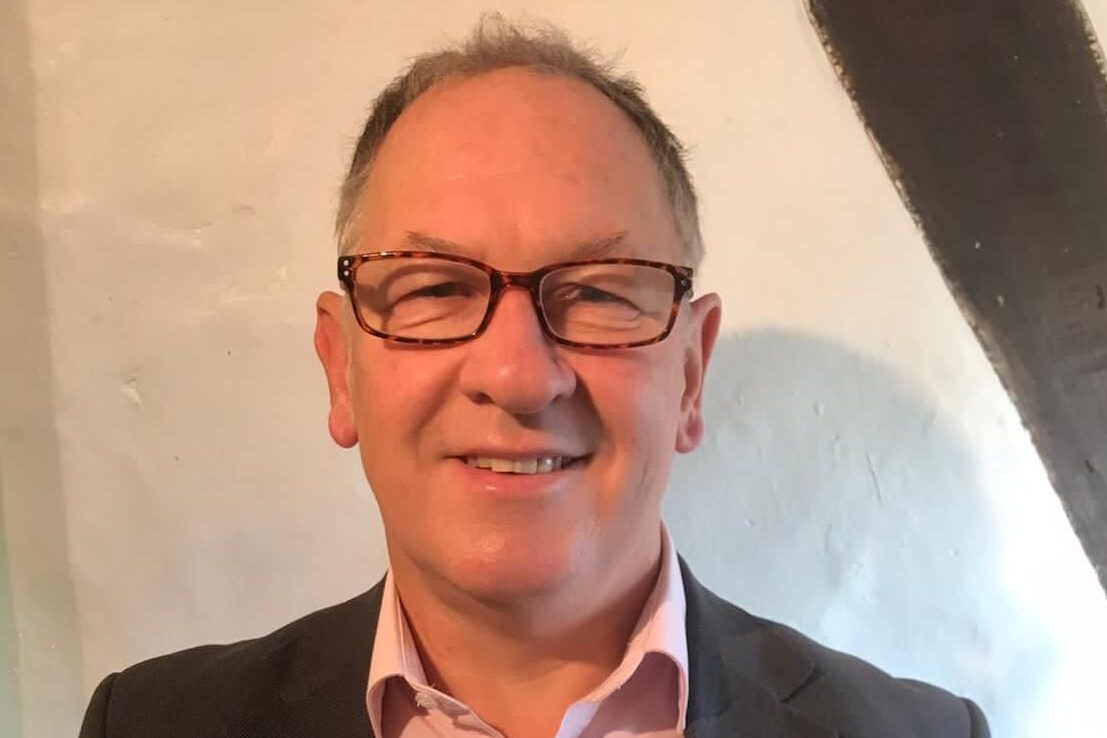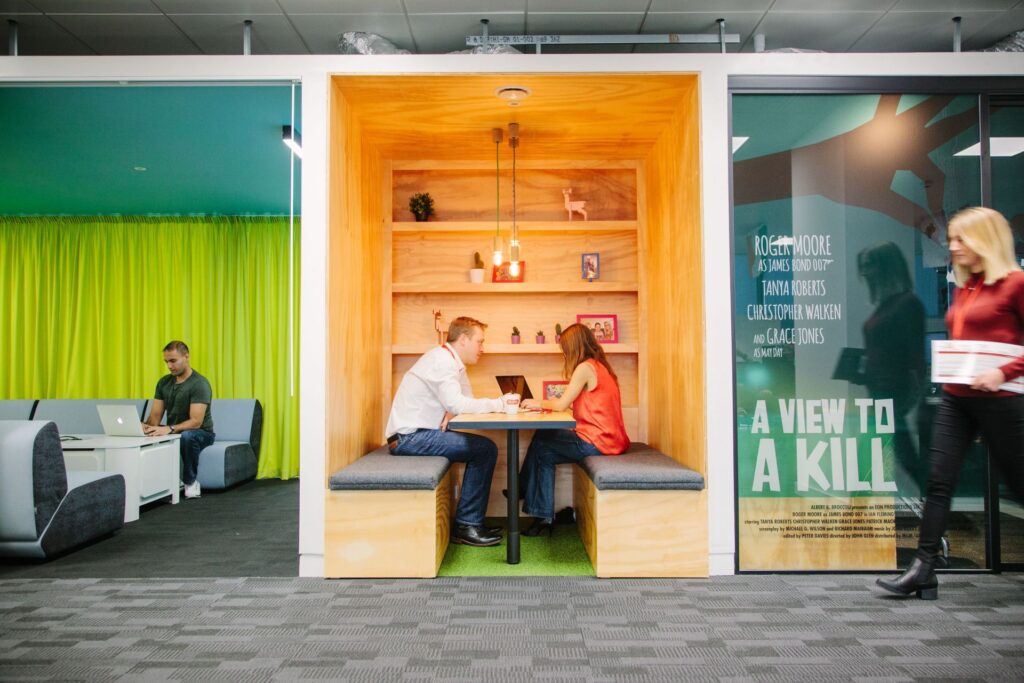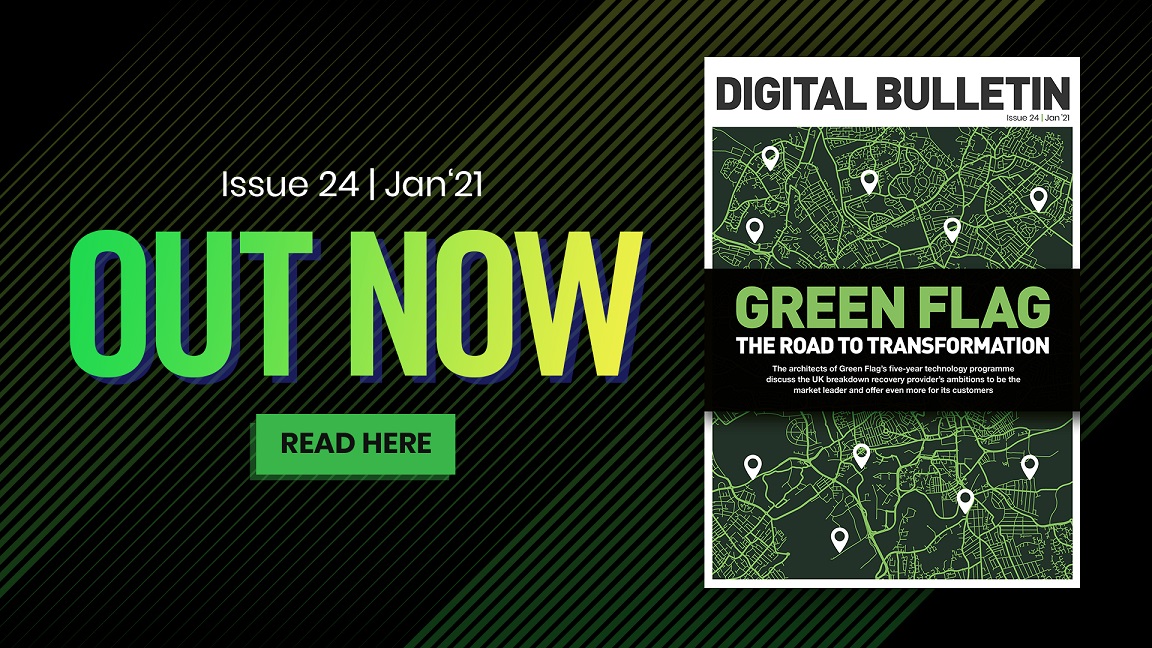
Moving jobs is often hard. After all, the grass isn’t always greener on the other side. But choosing to take on a new challenge after 20 years’ service to one company is an especially bold decision. Very recently, Simon Bennett did exactly.
Over two decades, Bennett worked his way up through the ranks at IBM. He first joined Big Blue as a solutions architect in 2000, before taking on different leadership roles in which he brokered global deals and worked with some of IBM’s major clients. Many in his position would have settled for continued success at IBM, and a clear path for the rest of their career.
Yet Bennett had a scratch to itch. When it emerged that IBM was planning to spin off its managed infrastructure business – creating a new and independent company called IBM NewCo – he sensed it might be time to move on. And one rival had caught his eye.
Rackspace was one of the earliest players in managed cloud services. When cloud was breaking through in the late 2000s, Rackspace – which had formed in 1998 – spotted an opportunity. Today, it serves thousands of customers across various industries and Bennett is its Chief Technical Officer (CTO) for EMEA, having moved from IBM last August.
He says he noticed Rackspace’s “dynamic” approach to pitching while at IBM, and that it stuck in his mind.
“I could see a fleet of foot when competing against Rackspace for IBM, with mid-market customers,” Bennett tells Digital Bulletin. “I thought, from my own point of view, wouldn’t it be great to be part of that? In deals, I was watching Rackspace being much more dynamic in reacting to circumstances, whereas IBM is formulaic by comparison. For a big company IBM is quite agile, but relatively speaking it’s not. With Rackspace, I saw a company evolving at a very fast pace.”
Nimbleness is an essential quality for technology companies of the age, especially post-pandemic. Rackspace has seen a surge in demand for its services because of COVID-19. Generally the pandemic has forced a pace of transformation that has made agility and flexibility a necessity, so the company was in good shape to deal with the extraordinary events of this year.
Moving from IBM, which has an established ecosystem of technology and services, to Rackspace, which pivots readily to meet customer demand, was an attractive proposition for Bennett.
“We can take direct feedback from customers on what they like and don’t like, and we’re very agile to change,” he says. “Our agility is our massive strength. IBM was a leviathan, a supertanker – call it what you will. What I love about Rackspace is its nimbleness. And also because the management structure is flat, if we need to change or do things, it’s very easy to get a decision.”

Still only a few months into his role, Bennett says he has had to hit the ground running. Since landing in the CTO chair, a lot of his activity has been “transactional” due to the weight of customer demand during COVID-19, with not a lot of time for longer-term planning. But he’s been warmly welcomed by his fellow “Rackers” and has already discovered strengths of the business that he wasn’t aware of previously.
“The breadth of the things that we deliver has changed my perception of the company,” he says. “And I’ve learned a lot about projects we’ve undertaken that are maybe not well advertised, but cover a real breadth of technical solutions for customers. The innovation going on is much better than I thought it would be. There are bits and pieces around IoT, edge, a little bit in the 5G space, and some really interesting Big Data work.
“The enthusiasm of fellow Rackers is great. Given I’ve not yet met anyone face-to-face, everyone’s been really welcoming and helpful, and the culture of the company of having video on has made that tolerable. I’ve seen more of people’s bedrooms, offices, dogs, cats and children than I’d ever imagined I would in my working life. But that has helped a lot because it gives you that bit of someone’s personality as well as their office persona.”
What I like to think I’m bringing is knowledge of how to devise solutions that are vertically aligned to business challenges
Bennett has big ambitions for Rackspace. The majority of its clients are medium-sized enterprises setting out on their cloud journeys, and he wants to use his experience of engagements with larger businesses from IBM to add some hefty new clients. But Bennett is also looking to realign Rackspace’s approach to business development with changing customer demands.
He calls this “selling business solutions in the vertical”. Bennett says Rackspace has previously fallen into the same trap as many technology companies, that of selling their solutions horizontally; so building the technology, and then searching for use cases for those solutions.
“What I like to think I’m bringing is knowledge of how to devise solutions that are vertically aligned to business challenges,” he says. “Ultimately now, businesses are buying solutions to problems. They’re not being told by the technologists what to do anymore. Before, the technologists would say to the business, ‘well we can do this, can you use it?’. Now the boot is on the other foot, and the business is saying ‘I need you to find a way to do this’. I think the business is much more empowered about wanting more from technology, and COVID-19 has accelerated that.”
COVID-19’s rocket-boost effect on digital transformation is well reported. Bennett says the pandemic has shone light on a number of areas where it has been able to help clients improve. Among these has been the shift to remote working, and how many of the customers in Rackspace’s mid-market range simply weren’t ready to roll out remote working at scale.
Where the company has been able to have the most impact with its range of technology solutions is, according to Bennett, with clients that only had rudimentary plans for digital change – and who have had the need to quickly accelerate over the past 12 months.
“We were probably most effective in helping those customers pick bits of a strategy off a shelf for an industry, and give them some of the jigsaw pieces to put together their own picture,” he says. “Maybe they had a simple jigsaw of 20 pieces, and we were able to give them 10 or 12 pre-cut pieces to put in that puzzle. This allowed them to work faster than they did, because we could provide the guidance.”

Rackspace’s agility as an organisation has also helped during COVID-19, with Bennett adding: “There’s no change-phobia in this company whatsoever, and that’s brilliant. People will pivot. We’ve got that mentality and a mindset that says ‘there are lots of MSPs [managed service providers] in the market, we’ve got to keep ahead of the game’.
“Vital is the need to keep up with the pace of change of the hyperscale cloud companies, and everyone accepts that we have to do that. Sometimes the customer demand is ahead of the capability, but that doesn’t matter in some ways because we can create the right thing, build it on top and then reuse it. It needs guardrails, it’s got to be technically robust, it’s got to be articulated in a way that maybe a salesman can talk to a business leader about it, but if you’ve got those things, don’t stop the enthusiasm to innovate.”
Rackspace’s relationships with the cloud hyperscalers is growing ever more important to its business. Around 85% of its revenue now comes from managed cloud services, and distributed cloud adoption is set to soar again in 2021 as the transformation trend continues. Rackspace has well-established strategic partnerships with the likes of AWS, Microsoft Azure and Google Cloud, alongside tie-ups with key cloud players such as VMware and Pure Storage.
Many Rackspace customers are adopting multicloud models, so it has to work closely with all the large providers – but Bennett says the relationship is symbiotic, and doesn’t just involve Rackspace acting as the conduit between customer and hyperscaler.
“The relationship is great because for us to be successful, we need their [hyperscalers] help, and we help enable the required pace of change for them to be successful. We are delivering value, but getting value at the same time. I think it’s a very complementary partnership. As a hyperscaler, you don’t want the day-to-day operational hassle. Our gig is to take that away from the customer. It’s a good relationship; of course though, like any relationship, it maybe has its rocky days!”
Bennett gives a scenario Rackspace often finds itself in where it wants to help its customers use the cloud, but also keep their cloud use to a minimum. He says this has cropped up more than ever during COVID-19 – some organisations have had to scale their cloud capacity rapidly, while others badly-affected by the pandemic have had to substantially shrink usage.
There’s no change-phobia in this company whatsoever, and that’s brilliant. People will pivot
“We deliberately created an offering that we call Optimizer+,” says Bennett. “If you think about what’s happened with people moving more and more to the cloud, how do you keep control of the costs? How do you review? As an MSP, we’re in a good position to bat on behalf of the customer, to make sure their consumption of cloud is optimised.
“I like to call it the “next-generation” cloud use. We’ve had cloud wave one, where people moved workloads to the cloud. The second wave is: ‘I’ve accelerated my digital journey, but have I done it efficiently?’ It could just be as simple as turning things off, but it could be rewriting chunks of applications to make them truly elastic.
“Taking stock is vitally important, and also making sure that you’re still secure, you’re still resilient. But there have been some real Herculean efforts from customers [in 2020], to move and evolve their business faster than I’ve ever seen before.”
With a knowing laugh, Bennett says IT teams will now be expected to continue the pandemic-induced pace of change in 2021 – “that in IT is the new normal. I hate that phrase, but it’s right” – but what will his own priorities be as the new year unfolds?
He says there will be a concerted push to market for Rackspace’s own products, including its private cloud offerings, but that most of his time will be dedicated to making sure the company continues to expand its presence in EMEA through content localisation.
“As we broaden our customer base, we need to make sure that we’ve got not only local language but that we understand the regulatory framework in those countries,” he says. “It’s content that takes a standard offering, and localises it for deployment and use in those countries, from a language, culture and regulatory perspective. That’s a big piece of work but that’s my initial prime focus.
“And at some point it will be nice to have a cup of coffee with some key customers and my senior colleagues in those countries, to ask what they need from the CTO in 2021 and beyond. That’s something I’m so looking forward to.”



